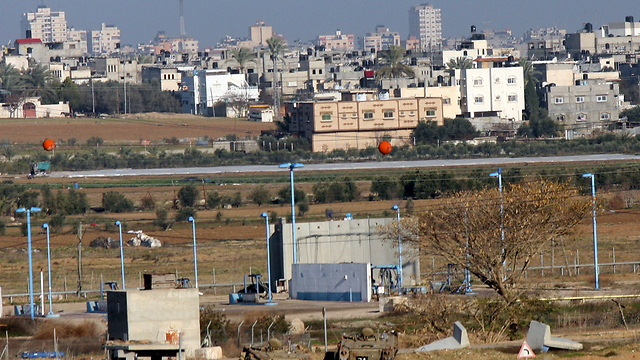
Why Israel should invite Turkey to Gaza
Op-ed: The Turkish demand to get 'free access' to the Strip allegedly removes the absolute supervision from Israel's hands, but can actually provide Israel with new and more efficient supervision tools and create a further leverage of pressure on the Hamas leadership.
This is allegedly a cheeky demand. We are talking about Israel's security here, and about an area controlled by a hostile and brutal terror organization which we have no interest in seeing blossoming and thriving. Just like Israel is not demanding that the siege over the Kurdish underground on the Turkish border be lifted, the Turks have no right to demand such a thing of us.
Hamas took over Gaza in 2007, shortly after Israel left the Strip. Since then, for nearly a decade, Israel has been trying to break Hamas' spirit through the blockade, prevent it from arming itself with ballistic missiles and other weapons and topple its rule. All these attempts have failed. During this period, Israel waged three difficult battles against the Hamas government (Operation Cast Lead in January 2008, Pillar of Defense in November 2012 and Protective Edge in July 2014) and failed to defeat it. Experts estimate that Hamas has already rebuilt a large part of its abilities.

Opponents will argue that the reason for the failure is that the IDF has never been given an order to destroy Hamas. That may be true, but the only way to win here is to reoccupy Gaza and its two million residents, and take care of their livelihood, health, sewage and education, under a tough rule of oppression. Any other alternative will not solve the problem.
An attempt to defeat Hamas, kill its leaders and leave the area again will cause more radical elements to rise to power, like the Iran-supported Islamic Jihad, and perhaps even elements affiliated with the Islamic State, which will make us miss Hamas.
Despite the lack of hope in this policy, Israel has been besieging Gaza for many years while providing for all its needs - from food, electricity and fuel to medications and construction materials. This policy has two goals: to control the commerce in order to prevent arms smuggling, and to convince the population that the Hamas rule is bad for them and harms their welfare.
The second goal may have been achieved - the population is increasingly suffering and many are unhappy with their rulers, but there is no sign on the horizon that the Hamas rule is growing weaker. The first goal has not been achieved. After a decade of siege, there are today thousands of missiles and other advanced weapons in the Strip.
A different option
The current negotiations present a different option - to remove this burden from Israel's shoulders and hand at least part of it over to Turkey. The idea is based on a Gazan seaport which will be built and operated by Turkey. The Ankara government will take responsibility for transferring a large part of the Strip's needs through another Turkish-controlled port, in Northern Cyprus for example.
As part of the agreement, Israel will demand that Turkey take responsibility for preventing the infiltration of weapons and arms into Gaza, and if it does assume such a responsibility, it will likely be strictly fulfilled.
It is unlikely that the penetration of such weapons can be hermetically prevented. The Gazans will try, of course, to do it in every possible way and to hide mortar shells inside teddy bears, but the Turks will do whatever they can to thwart it. It may also be possible to demand surprise inspections by an international body at Israel's request.
This system allegedly removes the absolute supervision from Israel's hands, but it can actually provide it with new and even more efficient supervision tools and create a further leverage of pressure on the Hamas leadership, which has nothing to lose at this time. In the long run, this could make it more difficult for the leadership to control the population, which will demand to be allowed to travel abroad for studies, tourism and family visits, and even in order to emigrate.
This approach is not risk-free, but after years of a failed blockade and three wars which ended in serious destruction and no defeat, it's time to try something else.
Nonetheless, we must admit that the possibility of opening the Strip to the world is particularly difficult for the right-wing settlers who control most of the State's systems these days. Such an agreement could have serious consequences as far as they are concerned - another layer of Palestinian independence, seeing the chance of re-controlling that part of the Land of Israel move further away, and in the long run, a possibility of an international border crossing in the West Bank as well without Israeli control. That may be one of the reasons for the strong objection to this idea.
Dror Zeevi is a professor at the Department of Islamic and Middle Eastern Studies at the Hebrew University of Jerusalem and a member of the Forum for Regional Thought.

















